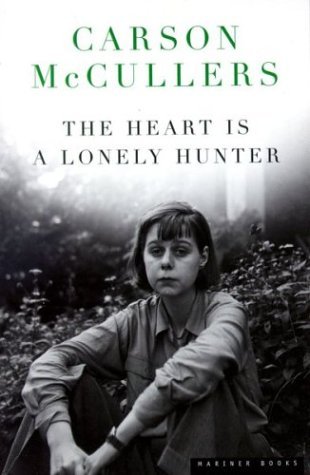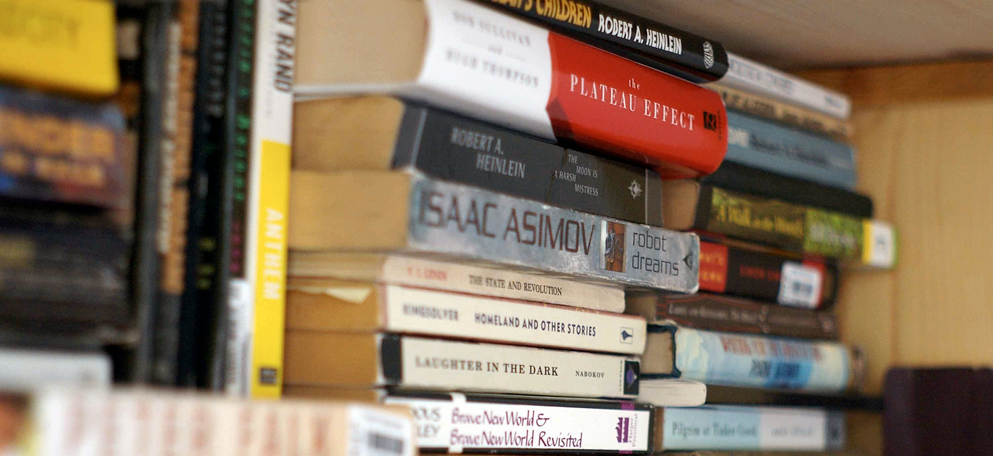
With the publication of her first novel, THE HEART IS A LONELY HUNTER, Carson McCullers, all of twenty-three, became a literary sensation. With its profound sense of moral isolation and its compassionate glimpses into its characters' inner lives, the novel is considered McCullers' finest work, an enduring masterpiece first published by Houghton Mifflin in 1940. At its center is the deaf-mute John Singer, who becomes the confidant for various types of misfits in a Georgia mill town during the 1930s. Each one yearns for escape from small town life. When Singer's mute companion goes insane, Singer moves into the Kelly house, where Mick Kelly, the book's heroine (and loosely based on McCullers), finds solace in her music. Wonderfully attuned to the spiritual isolation that underlies the human condition, and with a deft sense for racial tensions in the South, McCullers spins a haunting, unforgettable story that gives voice to the rejected, the forgotten, and the mistreated -- and, through Mick Kelly, gives voice to the quiet, intensely personal search for beauty.
Richard Wright praised Carson McCullers for her ability "to rise above the pressures of her environment and embrace white and black humanity in one sweep of apprehension and tenderness." She writes "with a sweep and certainty that are overwhelming," said the NEW YORK TIMES. McCullers became an overnight literary sensation, but her novel has endured, just as timely and powerful today as when it was first published. THE HEART IS A LONELY HUNTER is Carson McCullers at her most compassionate, endearing best.
Quotes and thoughts while reading:
It took a while for me to get into this book, but by the time the number of pages left in the book had dwindled to a handful, I was sad and remiss for it to come to an end.
"The place was still not crowded - it was the hour when men who have been up all night meet those who are freshly wakened and ready to start the day. The sleepy waitress was serving both beer and coffee. There was no noise or conversation, for each person seemed to be alone. The mutual distrust between the men who were just awakened and those who were ending the long night gave everyone a feeling of estrangement. (p 30)
"She was in such a hurry that it was hard to stand still. Her Dad noticed this. He tried to say something - but he had not called to tell her anything special. He only wanted to talk with her for a little while. He started to speak and swallowed. They just looked at each other. The quietness grew out longer and neither of them could say a word.
That was when she realized about her Dad. it wasn't like she was learning a new fact - she had understood it all along in every way except with her brain. Now she just suddenly knew that she knew about her Dad. He was lonesome and he was an old man. Because none of the kids went to him for anything and because he didn't earn much money he felt like he was cut off from the family. And in his lonesomeness he wanted to be close to one of his kids - and they were all so busy that they didn't know it. He felt like he wasn't much real use to anybody...
... That night she sat down in a chair by his bench and they talked awhile. He talked about accounts and expenses and how things would have been is he had just managed in a different way. He drank beer, and once the tears came to his eyes and he snuffled his nose against his shirt-sleeve. She stayed with him a good while that night. Even if she was in an awful hurry..." (p 101)
"Listen! One out of five of us labors to build roads, or to take care of the sanitation of this city, or works in a sawmill or on a farm. Another one out of five is unable to get any work at all. But the other three out of this five - the greatest number of our people? Many of us cook for those who are incompetent to prepare the food that they themselves eat. Many work a lifetime tending flower gardens for the pleasure of one or two people. Many of us polish slick waxed floors of fine houses. Or we drive automobiles for rich people who are too lazy to drive themselves. We spend our lives doing thousands of jobs that are of no real use to anybody. We labor and all of our labor is wasted. Is that service? No, that is slavery." (p 192)
"This excitement was in her, and she said something she didn't mean to say. 'I would if you would. I dare you to.'
Harry slicked back the dark, wet bangs of his hair. 'O.K.'
They both took off their bathing-suits. Harry had his back to her. He stumbled and his ears were red. Then they turned toward each other. Maybe it was half an hour they stood there - maybe not more than a minute.
Harry pulled a leaf from a tree and tore it to pieces. 'We better get dressed.'
...She threw a pine cone in the water. 'Maybe we better start back if we want to be home before dark.'
'No,' he said. 'Let's lie down. Just for a minute.'
...They both turned at the same time. They were close against each other. She felt him trembling and her fists were tight enough to crack. 'Oh, God,' he kept saying over and over. It was like her head was broke off from her body and thrown away. And her eyes looked up straight into the blinding sun while she counted something in her mind. And then this was the way.
This was how it was." (p 273-274)
It's strange, I feel like Mick grew up all the sudden. And it is possibly with the passage above that she did, in that very moment transcend from being a child into being an adult. Singer and Mick were the two characters I cared the most about. And at the end, I was sad this world was over. These people were gone, no more, vanished and erased as I closed the book.
Thanks Katie for the birthday book.
© JKloor 2016 Books
